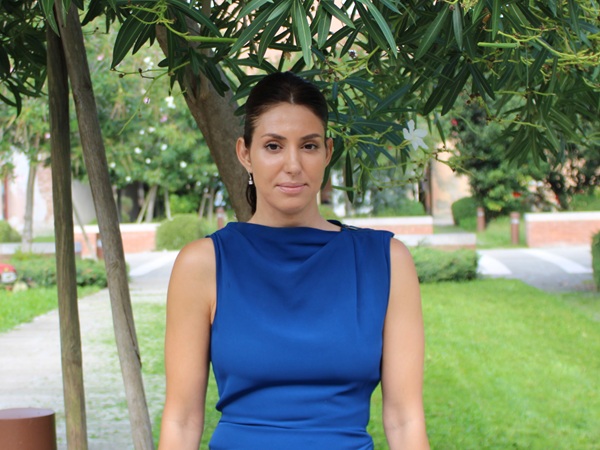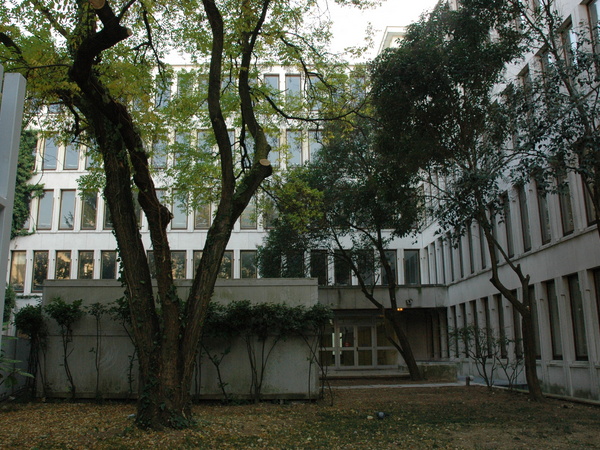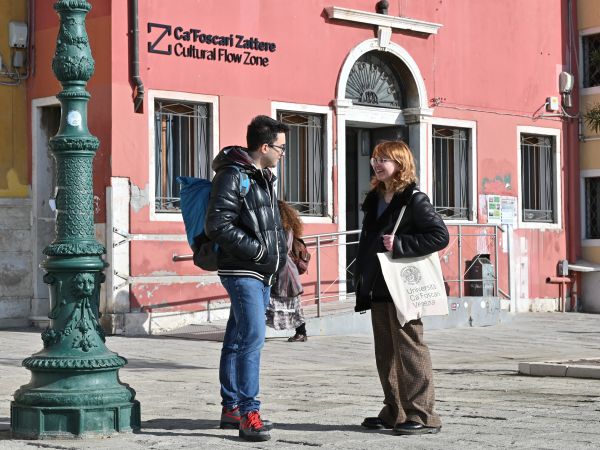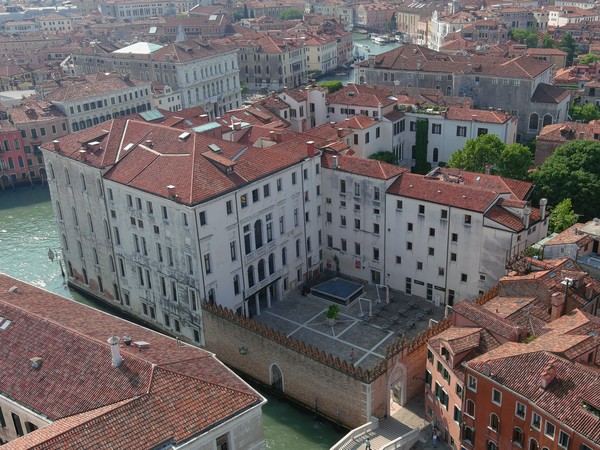From New York to Venice: Katerina Petrova brings cutting-edge econometrics research to Ca' Foscari with ERC funding

Coming from the Federal Reserve Bank of New York, Katerina Petrova has arrived at Ca' Foscari University of Venice, where she has taken up her position as an Associate Professor of Econometrics in the Department of Economics. Her arrival and her research are supported by a prestigious ERC (European Research Council) Starting Grant, a highly competitive European funding award that recognizes the scientific excellence of emerging researchers.
Originally from Bulgaria, Professor Petrova earned her PhD in Economics at Queen Mary University London and has conducted research at various international institutions, including the University of St Andrews and Pompeu Fabra University in Barcelona. Katerina brings her innovative research in econometrics, a field that uses statistical methods to analyze economic data, from a leading U.S. institution to the academic environment of Ca' Foscari.
Her groundbreaking ERC-funded project aims to revolutionize how we understand and manage complex data that changes over time, particularly in macroeconomic and financial contexts. Imagine trying to test a hypothesis on stock market trends or understand economic growth when the data behaves in unpredictable ways, sometimes steadily, sometimes erratically, or even contains strong "memories" of past patterns.
Petrova's work proposes a novel approach to tackle these challenges, making such intricate data more accessible and manageable for researchers and practitioners alike. This will allow for more robust and reliable analyses, ultimately enhancing our ability to interpret and respond to the dynamic forces shaping our economy and society.
Your project is incredibly ambitious, aiming to make complex data more understandable and manageable. Could you tell us what inspired this innovative idea, and what kind of impact you hope it will have on fields like finance, or even on society more broadly?
“The idea behind the project is to design new statistical procedures that are robust and can be applied to data that has a lot of 'memory' over time. In such setups, existing procedures fail. Since most economic and financial data exhibit this kind of memory over time, and because the procedures from this project are very easy and simple to implement, the scope of the project is very broad. The new methods can be widely applied to any structural and reduced-form models routinely used in economics by researchers and policymakers, such as central banks. A big inspiration for the project was studying the complicated existing robust procedures during my PhD and wondering if it was possible to design something completely different, an approach that is simple, easy to use, and remains valid without the need for prior knowledge about the 'memory' of the data series.”
Running such a cutting-edge project must require a diverse set of skills. What kind of expertise do you need to bring together, and how will your work at Ca' Foscari be structured to achieve your goals?
"The set of skills required is fairly diverse. At its core, the project requires creativity and original thinking to design the econometric procedures, along with intuition to guide how the theory will unfold. Since this is a theoretical project, a big part involves establishing the asymptotic theory behind the new econometric procedures and ensuring the mathematical proofs are precise and well-justified.
On the other hand, the project also requires a lot of coding to design simulation exercises. These simulations test the performance of the proposed procedures in a controlled, artificial environment, validating the theoretical results, and studying how the approaches perform with smaller samples and how they compare to existing methods. Finally, the project involves real-data applications, demonstrating the usefulness of the approach to practitioners. Additional skills include writing academic papers clearly and disseminating the research to the broader academic community and policymakers through presentations and conferences.
But the structure I follow is always the same: start with an original idea, then develop the theory, run simulations to validate the theory, apply it to interesting economic and financial problems, present the project at econometric conferences for feedback, and finally write and submit the paper to a scientific journal."
You're moving from the Federal Reserve Bank of New York, a U.S. institution, to Ca' Foscari University for this project. What made you choose Ca' Foscari as the ideal place to conduct your research?
“I am from Europe, and I belong in Europe, so my plan has always been to return from the U.S. to Europe. Because of the ERC grant, I had many job opportunities in Spain, Italy, and the UK. I chose Ca' Foscari because I know the econometrics/statistics group in the Economics department very well; it's a very strong research group with fantastic researchers, and I do not doubt that it will provide me with the right research environment to develop my project to its full potential. Also, on a more personal note, I love the city of Venice. I think it is one-of-a-kind, and I expect that living in Venice will be an extraordinary experience.”
Beyond the specifics of this grant, what initially drew you to the field of econometrics, and what drives your passion for research in this area?
"Econometrics is essential because it provides the statistical tools to rigorously test abstract economic theories and hypotheses, allowing the data to inform our understanding. This empirical validation is what makes economics a truly scientific discipline, and that is what drives my passion for research in this field."










